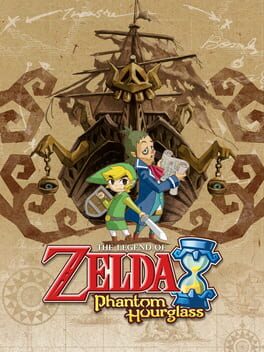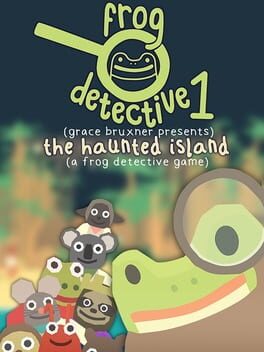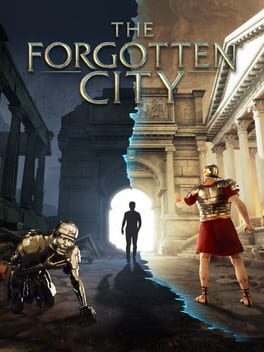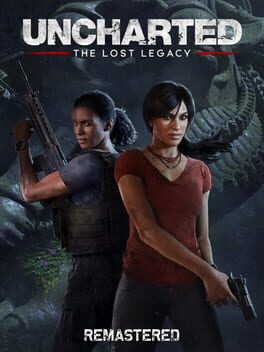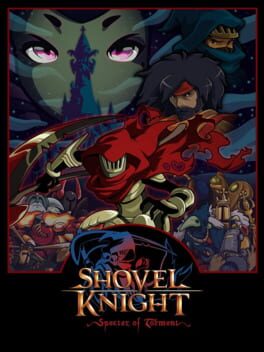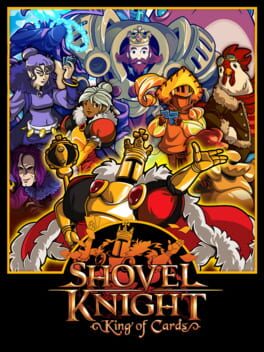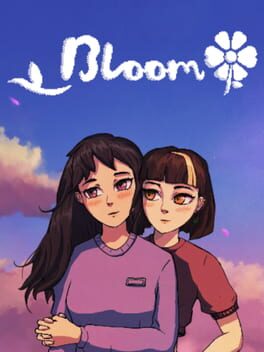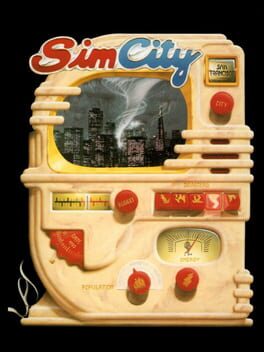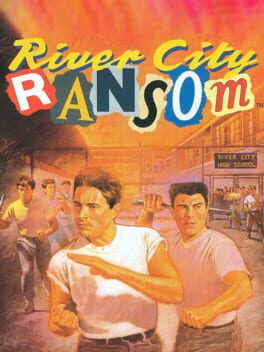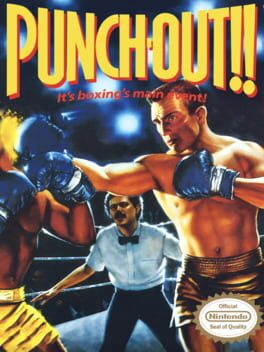mrfollowfollow
7 reviews liked by mrfollowfollow
Not the flashiest Zelda, or the most cinematic, its not a masterpiece and its not quite a classic. But I think its the most pure puzzle focused fun Zelda game I've played.
The Temple of the Ocean King is not that bad. The boat is about equally as good as the train from Spirit Tracks. And this game really makes me love the Nintendo DS touchscreen and all the neat mechanics it could do.
The Temple of the Ocean King is not that bad. The boat is about equally as good as the train from Spirit Tracks. And this game really makes me love the Nintendo DS touchscreen and all the neat mechanics it could do.
The Forgotten City
2021
This review contains spoilers
There is a point in The Forgotten City — and this point can arise at almost any moment in your playthrough, or not at all — where you happen upon an old man sitting alone in a dimly lit cave. This stranger is surrounded by damp walls and artifacts of an ancient civilization strewn upon the stone at his feet, but he wears a soft smile, clearly happy to see another living being after so much time spent in solitude. He's content, despite what you may or may not know about his circumstances by now. With your permission, he proceeds to ask a series of questions that — though undeniably expository — feel like a natural extension of the game’s underlying desire to have its players linger over their answers. This man, and The Forgotten City by proxy, is wholly obsessed with one query above all else:
"Would you say you know the difference between right and wrong?"
After waking up beside a riverbed in the modern era, The Forgotten City sends you back in time to a lost Roman city entombed deep underground. There you'll come across the city's magistrate who warns you of impending doom via what he and the other 20+ residents refer to as "The Golden Rule." Put bluntly, if anyone in the city commits a sin, everyone in the city will die. The magistrate is certain someone will break The Golden Rule today, and has prayed at a nearby temple to unhook a traveler from time who can help find the culprit before they perpetrate a crime. So begins what is unequivocally the best timeloop game of 2021 and an experience I'll hold with me for years to come, because as clear as the central Golden Rule may seem on the surface, careful consideration reveals layers of depth that spiral downward further and further towards self-examined moral standing.
"Better to know that you know nothing, than to know nothing and think that you know."
The Forgotten City brilliantly ends your first conversation with the magistrate by giving the player their very first lead: He asks you to speak with Lucretia, a doctor in a nearby temple, to determine why she's so upset. This early on it's possible you don't know the location of the temple in relation to the magistrate's villa, and by wandering around with this one simple goal the player may find themselves subconsciously mapping the area in the process. While doing so it's possible to stumble into most of the city's other residents, who are all in some way involved with piecing together the larger mystery via smaller disparate side-quests and leads of their own. It's in this way that the team behind the The Forgotten City manages to take a complex and seemingly daunting web of interactions, dialogue trees, and timing and use them to their advantage: If everything is connected, every player will discover a path to progress no matter what they do. Every conversation on the path towards one lead uncovers another lead in its wake, and suddenly the player is progressing on multiple fronts simultaneously. For a game about looping through the same day repeatedly, its clock-like construction feels as ironic as it is purposeful.
"If there is one thing I have observed about rules, it is that virtuous people do not need them, and evil people will always find a way around them."
Lucretia, as it turns out, is distressed because her patient Iulia is dying. The only person in the city who holds the cure is a nearby merchant by the name of Desius, who has placed such an exorbitant price on the medication that it’s a certainty he is resigning Iulia to death. Players might assume this decision breaks The Golden Rule and wait for the thunderous voice of an angry deity to shout downwards into the city from the heavens, but the only audible sound is the soft cry of Lucretia as her patient slips away.
Desius thrives under The Golden Rule. Essentially a con-artist, he spends his time in the city considering various loopholes he can use to increase his standing and expedite his way to riches without breaking what he assumes to be any of the Rule’s core tenants. Personally, I think the sick freak finds it exciting to get away with murder beneath the nose of an unknowable cosmic force. Desius’ interpretation of the Rule is a dark reflection of what he presumes an honorable god would enact upon the city, using his conjecture to skirt around his imagined rules. After seeing his actions, players might start to challenge The Golden Rule themselves: If Desius can knowingly cause the death of another under Rule’s dominion, how truly just is this system?
"We must accept the sad truth that no human society will ever achieve the utopia for which it strives. Because the only way to create a utopia is through the ever-present threat of force, such as The Golden Rule... and life under tyranny is no utopia at all."
Although real life doesn't have a singular Golden Rule to follow, every era of human civilization has multiple moral ideologies. Depending on region, religion, or lack thereof, any individual might adopt or reject the societal code into which they have been born or raised. Reflecting on the laws of previous civilizations from our privileged position in the Now reveals entire eras of barbarism — how could they not have known their morality was so grotesque, so inhumane? The truth is that the same reaction will spew forth from any historian fifty, one hundred, or one thousand years from now when they too look back on our society as inferior.
The Forgotten City asks its players to consider the code they follow as a personal act, because righteousness from within spreads outwards into society and brings us closer to the aspirational utopia we can never truly grow into. And we shouldn’t grow into it, a humanity that has reached its apex is no longer humanity at all. Without constantly striving to better ourselves and others, we'll languish as a civilization, like golden statues with nowhere to run.
"Would you say you know the difference between right and wrong?"
After waking up beside a riverbed in the modern era, The Forgotten City sends you back in time to a lost Roman city entombed deep underground. There you'll come across the city's magistrate who warns you of impending doom via what he and the other 20+ residents refer to as "The Golden Rule." Put bluntly, if anyone in the city commits a sin, everyone in the city will die. The magistrate is certain someone will break The Golden Rule today, and has prayed at a nearby temple to unhook a traveler from time who can help find the culprit before they perpetrate a crime. So begins what is unequivocally the best timeloop game of 2021 and an experience I'll hold with me for years to come, because as clear as the central Golden Rule may seem on the surface, careful consideration reveals layers of depth that spiral downward further and further towards self-examined moral standing.
"Better to know that you know nothing, than to know nothing and think that you know."
The Forgotten City brilliantly ends your first conversation with the magistrate by giving the player their very first lead: He asks you to speak with Lucretia, a doctor in a nearby temple, to determine why she's so upset. This early on it's possible you don't know the location of the temple in relation to the magistrate's villa, and by wandering around with this one simple goal the player may find themselves subconsciously mapping the area in the process. While doing so it's possible to stumble into most of the city's other residents, who are all in some way involved with piecing together the larger mystery via smaller disparate side-quests and leads of their own. It's in this way that the team behind the The Forgotten City manages to take a complex and seemingly daunting web of interactions, dialogue trees, and timing and use them to their advantage: If everything is connected, every player will discover a path to progress no matter what they do. Every conversation on the path towards one lead uncovers another lead in its wake, and suddenly the player is progressing on multiple fronts simultaneously. For a game about looping through the same day repeatedly, its clock-like construction feels as ironic as it is purposeful.
"If there is one thing I have observed about rules, it is that virtuous people do not need them, and evil people will always find a way around them."
Lucretia, as it turns out, is distressed because her patient Iulia is dying. The only person in the city who holds the cure is a nearby merchant by the name of Desius, who has placed such an exorbitant price on the medication that it’s a certainty he is resigning Iulia to death. Players might assume this decision breaks The Golden Rule and wait for the thunderous voice of an angry deity to shout downwards into the city from the heavens, but the only audible sound is the soft cry of Lucretia as her patient slips away.
Desius thrives under The Golden Rule. Essentially a con-artist, he spends his time in the city considering various loopholes he can use to increase his standing and expedite his way to riches without breaking what he assumes to be any of the Rule’s core tenants. Personally, I think the sick freak finds it exciting to get away with murder beneath the nose of an unknowable cosmic force. Desius’ interpretation of the Rule is a dark reflection of what he presumes an honorable god would enact upon the city, using his conjecture to skirt around his imagined rules. After seeing his actions, players might start to challenge The Golden Rule themselves: If Desius can knowingly cause the death of another under Rule’s dominion, how truly just is this system?
"We must accept the sad truth that no human society will ever achieve the utopia for which it strives. Because the only way to create a utopia is through the ever-present threat of force, such as The Golden Rule... and life under tyranny is no utopia at all."
Although real life doesn't have a singular Golden Rule to follow, every era of human civilization has multiple moral ideologies. Depending on region, religion, or lack thereof, any individual might adopt or reject the societal code into which they have been born or raised. Reflecting on the laws of previous civilizations from our privileged position in the Now reveals entire eras of barbarism — how could they not have known their morality was so grotesque, so inhumane? The truth is that the same reaction will spew forth from any historian fifty, one hundred, or one thousand years from now when they too look back on our society as inferior.
The Forgotten City asks its players to consider the code they follow as a personal act, because righteousness from within spreads outwards into society and brings us closer to the aspirational utopia we can never truly grow into. And we shouldn’t grow into it, a humanity that has reached its apex is no longer humanity at all. Without constantly striving to better ourselves and others, we'll languish as a civilization, like golden statues with nowhere to run.
Uncharted: The Lost Legacy might genuinely be my favourite entry in the franchise. And while it’s one of the - if not the shortest in the series, it’s certainly unparalleled.
The reasoning for it being my favourite is down to one thing - the writing and characterisation of Chloe and Nadine. I’ve genuinely no idea how Naughty Dog made such excellent choices to make these characters have completely natural arcs and incredibly witty dialogue.
The back and forth banter between the two just works.
In all honesty this game is the sole reason I picked up the Legacy of Thieves Collection and if you haven’t played it, you absolutely must.
(Now please, Naughty Dog, give me an entire series based off of Chloe and Nadine’s adventures..)
The reasoning for it being my favourite is down to one thing - the writing and characterisation of Chloe and Nadine. I’ve genuinely no idea how Naughty Dog made such excellent choices to make these characters have completely natural arcs and incredibly witty dialogue.
The back and forth banter between the two just works.
In all honesty this game is the sole reason I picked up the Legacy of Thieves Collection and if you haven’t played it, you absolutely must.
(Now please, Naughty Dog, give me an entire series based off of Chloe and Nadine’s adventures..)
Specter of Torment is the first time I've completely enjoyed myself playing Shovel Knight. Shovel of Hope didn't have any glaring issues, it just wasn't anything spectacular. Plague of Shadows had some issues, but they were ironed out by the finale. Specter of Torment is extremely fun from beginning to end. The whole mode is a serious of engaging platforming challenges where you're frequently using the enemies and obstacles as the answer to whatever platforming puzzle Yacht Club has laid before you. The story is fine, nothing spectacular, although I do like that SoT takes place before SoH and PoS. This is far and away the best Shovel Knight has to offer (unless King Knight mode really blows my socks off).
A perfect way to cap off Shovel Knight Treasure Trove. I'm amazed at how Yacht Club Games managed to reimagine these levels so well across four separate campaigns, with four unique control schemes. King Knight, like Plague Knight, takes a while to get used to, but handles like a DREAM once you get it down.
The way they expanded on his character is particularly impressive. He's such a nothingburger in the original campaign, serving only as the first simple boss to beat. Through his own adventure, he becomes surprisingly compelling, perhaps being the most fleshed-out character in Treasure Trove. That final cutscene was impressively powerful after the journey he went through, the decisions he made, and the knowledge we have of what happens next.
[EDIT: Returning to this review after a month of mulling it over to say that this is 100% my favorite ending to any video game. I can't stop thinking about it.]
Lastly, Joustus. I hated Joustus at first, but the more I stuck with it, the more I loved it, and by the end of the game, I was legitimately sad there were no more Joustus matches. What I thought would be a lame diversion of a card game turned out to be one of my favorite aspects of Treasure Trove.
Yacht Club delivered everything they promised in their Kickstarter. That alone is impressive. But even more impressive is that the quality never dipped. Every bit of Shovel Knight: Treasure Trove is treasure indeed, and King of Cards was a worthy ending to the greatest retro pixel art game ever created.
The way they expanded on his character is particularly impressive. He's such a nothingburger in the original campaign, serving only as the first simple boss to beat. Through his own adventure, he becomes surprisingly compelling, perhaps being the most fleshed-out character in Treasure Trove. That final cutscene was impressively powerful after the journey he went through, the decisions he made, and the knowledge we have of what happens next.
[EDIT: Returning to this review after a month of mulling it over to say that this is 100% my favorite ending to any video game. I can't stop thinking about it.]
Lastly, Joustus. I hated Joustus at first, but the more I stuck with it, the more I loved it, and by the end of the game, I was legitimately sad there were no more Joustus matches. What I thought would be a lame diversion of a card game turned out to be one of my favorite aspects of Treasure Trove.
Yacht Club delivered everything they promised in their Kickstarter. That alone is impressive. But even more impressive is that the quality never dipped. Every bit of Shovel Knight: Treasure Trove is treasure indeed, and King of Cards was a worthy ending to the greatest retro pixel art game ever created.
Bloom
2022
Really enjoyed my time with Bloom. A sweet coming of age story about a queer women in Japan who opens a flower shop. The game takes place in real time, with flowers growing over the course of multiple-real world hours. The story is told through Midori's phone, which every few hours or so will buzz with a new conversation for you to read through and make (basically meaningless, but still nice to include) choices. The stakes are never high, and every minute spent looking at Midori's tokatsu or her little stray black cat is a minute well spent.
I will say that I felt the subject matter was kind of an odd choice for a dev team entirely (as far as I can gather) made up of American men. While I definitely don't think you can't write about things you haven't directly lived, there were periods where it felt very much to me like I was reading what a man thought two young queer girls would interact like, instead of anything real. But I could just be reading too much into that.
I will say that I felt the subject matter was kind of an odd choice for a dev team entirely (as far as I can gather) made up of American men. While I definitely don't think you can't write about things you haven't directly lived, there were periods where it felt very much to me like I was reading what a man thought two young queer girls would interact like, instead of anything real. But I could just be reading too much into that.
